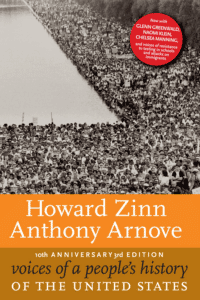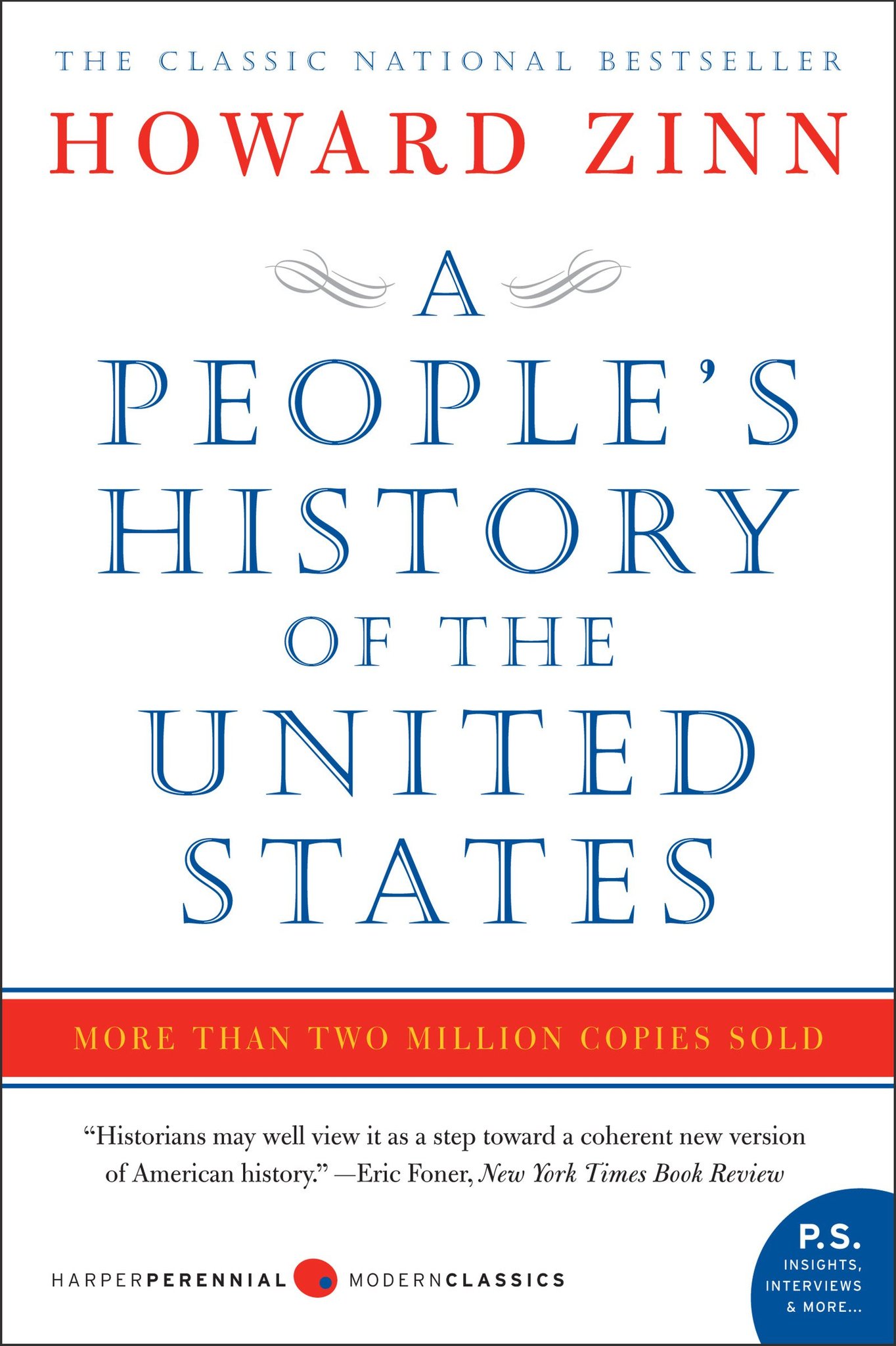 Voices of a People’s History is the companion volume to Howard Zinn’s A People’s History of the United States. For Voices, Zinn and Arnove have selected testimonies to living history—speeches, letters, poems, songs—left by the people who make history happen but who usually are left out of history books. Zinn has written short introductions to the texts, which range in length from letters or poems of less than a page to entire speeches and essays that run several pages. Voices of a People’s History is a symphony of our nation’s original voices, rich in ideas and actions, the embodiment of the power of civil disobedience and dissent wherein lies our nation’s true spirit of defiance and resilience.
Voices of a People’s History is the companion volume to Howard Zinn’s A People’s History of the United States. For Voices, Zinn and Arnove have selected testimonies to living history—speeches, letters, poems, songs—left by the people who make history happen but who usually are left out of history books. Zinn has written short introductions to the texts, which range in length from letters or poems of less than a page to entire speeches and essays that run several pages. Voices of a People’s History is a symphony of our nation’s original voices, rich in ideas and actions, the embodiment of the power of civil disobedience and dissent wherein lies our nation’s true spirit of defiance and resilience.
Here in their own words are Frederick Douglass, George Jackson, Chief Joseph, Martin Luther King Jr., Plough Jogger, Sacco and Vanzetti, Patti Smith, Bruce Springsteen, Mark Twain, Paul Robeson, Cesar Chavez, Leonard Peltier, June Jordan, Walter Mosley, Ethel and Julius Rosenberg, Yolanda Huet-Vaughn, and Malcolm X, to name just a few of the hundreds of voices that appear in Voices of a People’s History of the United States, edited by Howard Zinn and Anthony Arnove.
The 10th anniversary edition will feature new voices including whistleblower Chelsea Manning; Naomi Klein, speaking from the Occupy Wall Street encampment in Liberty Square; a member of Dream Defenders, a youth organization that confronts systemic racial inequality; members of the undocumented youth movement, who occupied, marched, and demonstrated in support of the DREAM Act; a member of the day laborers movement; and several critics of the Obama administration, including Glenn Greenwald, on governmental secrecy. [Publisher’s description.]
ISBN: 9781609805920 | Seven Stories Press
Reviews
“Voices should be on every bookshelf. [It presents] the rich tradition of struggle in the United States, from the resistance to the conquest of the Americas in the era of Columbus through the protests today of soldiers and their families against the brutal invasion and occupation of Iraq.” —Arundhati Roy
“In Voices of a People’s History of the United States, Howard Zinn has given us our true story, the ongoing, not-so-secret narrative of race and class in America.” —Russell Banks
“When I began work, five years ago, on what would become the present volume, Voices of a People’s History of the United States, I wanted the voices of struggle, mostly absent from our history books, to be given the place they deserve. I wanted labor history, which has been the battleground, decade after decade, century after century, of an ongoing fight for human dignity, to come to the fore. And I wanted my readers to experience how at key moments in our history some of the bravest and most effective political acts were the sounds of the human voice itself.
“To omit or to minimize these voices of resistance is to create the idea that power only rests with those who have the guns, who possess the wealth, who own the newspapers and the television stations. I want to point out that people who seem to have no power, whether working people, people of color, or women—once they organize and protest and create movements—have a voice no government can suppress.” —Howard Zinn, from the introduction
Excerpt
Included in Voices of a People’s History is the full statement Paul Robeson intended to present when called before the House Un-American Activities Committee (HUAC) on June 12, 1956. Robeson, who had been a fierce opponent of racism and the foreign policy of the United States, was not allowed to read his statement.
“It would be more fitting for me to question Walter, Eastland, and Dulles than for them to question me, for it is they who should be called to account for their conduct, not I. Why does Walter not investigate the truly “un-American” activities of Eastland and his gang, to whom the Constitution is a scrap of paper when invoked by the Negro people and to whom defiance of the Supreme Court is a racial duty? And how can Eastland pretend concern over the internal security of our country while he supports the most brutal assaults on fifteen million Americans by the white citizens councils and the Ku Klux Klan? When will Dulles explain his reckless irresponsible “brink of war” policy by which the world might have been destroyed?”








Twitter
Google plus
LinkedIn